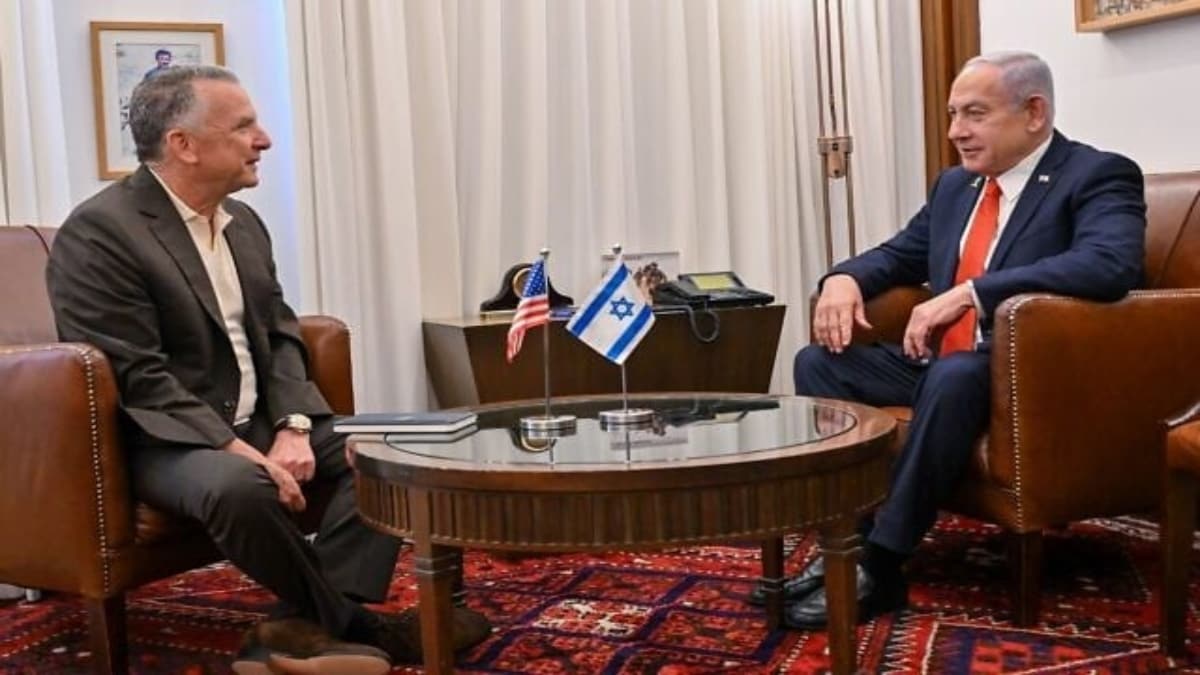Israel and the US are working on an umbrella deal with Hamas to permanently stop the war in Gaza. This marks a major shift in the Israeli government’s Gaza policy of pushing for a phased agreement.read more
As the
crisis in Gaza intensifies, Israel and the United States are planning to shift their policy regarding reaching a
ceasefire deal with Hamas. Both nations are now aiming to put a comprehensive framework in place instead of partial ceasefire agreements and hostage-release deals.
The news for this approach was first shared by an Israeli official close to the matter; however, American officials are also hinting at the same shift. “There will be no more partial deals,” the official was quoted as saying, explaining that Israel and the US now concur on the need to “shift from a framework for the release of some of the hostages to a framework for the release of all of the hostages, the disarmament of Hamas and the demilitarization of the Gaza Strip,” The Times of Israel reported.
“At the same time, Israel and the US will work to increase the humanitarian aid, while continuing the fighting in Gaza,” the source was quoted as saying. The remarks from both the Israeli and the US officials came following the US’s Middle East envoy
Steve Witkoff’s visit to Israel.
However, the ambiguous nature of the comments leaves one wondering how or when the war in Gaza would end. The shift is also coming at a time when ceasefire talks between the two warring sides have stalled, with Israel attacking Gaza aid sites and Hamas committing atrocities against Israeli hostages.
A major shift for Israel and the reasons behind it
If the idea is actualised, it would mark a major shift for Israel, which came up with the phased hostage deal framework during the first year of the war. For months, the Israeli government only focused on negotiating a two-phased deal for a
60-day cease-fire in Gaza and the release of some hostages, leaving talks on the end of the war at bay.
Many believe that the shift in Tel Aviv’s rhetoric comes as Prime Minister Benjamin Netanyahu’s government faces rising domestic pressure to secure the release of hostages still held in Gaza. Israel believes that there are around 20 hostages who are still alive in Gaza, and the bodies of 30 others remain in the coastal enclave.
A
gut-wrenching video released by Hamas over the weekend showed two living captives looking emaciated and frail, shocking many Israelis and sparking fear among the hostages’ families. Apart from this, the Israeli government are also facing major international backlash over the mass hunger that has spread through Gaza’s population of about two million people after Israel imposed strict restrictions in recent months on the entry of aid.
Witkoff hinted at the same
While
speaking to the families of the Israeli hostages during his visit, US envoy Steve Witkoff said that US President Donald Trump now wants to see all the living hostages released at once, hinting at a push for a comprehensive deal. “No piecemeal deals, that doesn’t work,” he said, according to an audio recording of part of the meeting published by the Ynet Hebrew news site.
“Now we think that we have to shift this negotiation to ‘all or nothing’ — everybody comes home,” he said. “We have a plan around it,” he added, without elaborating. Meanwhile, a participant in the meeting also confirmed that Witkoff made such remarks.
In light of this,
Netanyahu and Trump are reportedly working on a new proposal that would involve presenting Hamas with an ultimatum. According to The Times of Israel, the ultimatum for Hamas would be that the Palestinian militant group would have to release the remaining hostages in exchange for Palestinian prisoners and agree to terms to end the war that include the group’s disarmament.
The term maintains that if Hamas fails to abide by it, the Israeli military would continue with its campaign in Gaza. Amid the reports, Mahmoud Mardawi, a Hamas official, said the Palestinian armed group had yet to receive a formal Israeli proposal for a comprehensive deal from Arab mediators. He made it clear that while Hamas would support the agreement in principle, it would not disarm.
“This has been our demand from the beginning: an end to the war, the release of prisoners, and day-after arrangements in the Gaza Strip — a clear and comprehensive deal,” Mardawi said in a phone interview to The New York Times. Hence, the prospects of any rapid advancement of such a deal look bleak.
